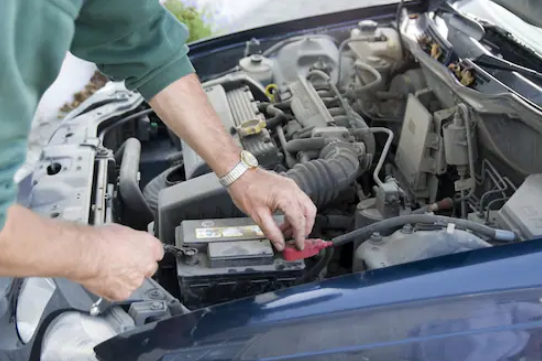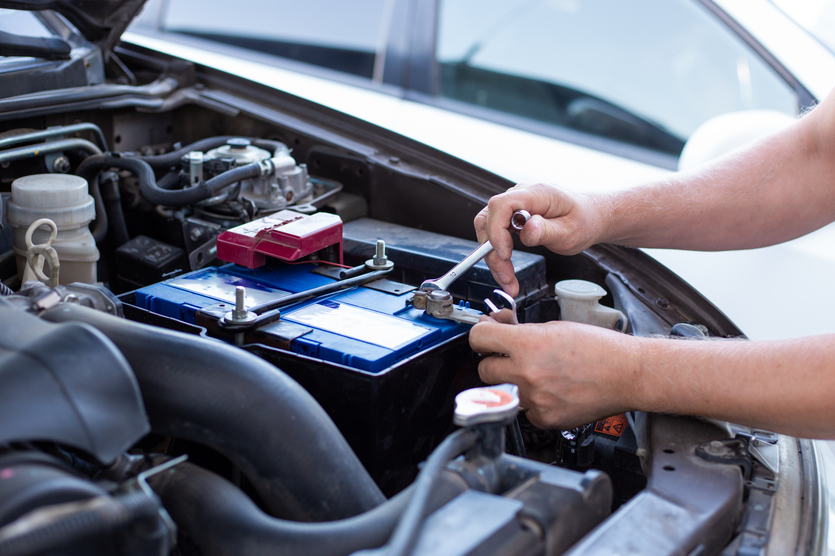Understanding the Basics of an RV Battery
RV batteries play a crucial role in providing power to various electrical systems and appliances in recreational vehicles. Whether you are a seasoned RV enthusiast or a beginner, it is important to have a good understanding of RV batteries and how they work. In this article, we will explore the basics of an RV battery, including types, maintenance, and charging.
Types of RV Batteries
There are several types of batteries commonly used in RVs, each with its own characteristics and advantages. The most common types include flooded lead-acid, AGM (absorbed glass mat), and lithium-ion batteries.
Flooded lead-acid batteries are the most affordable option and are commonly found in older RVs. They require regular maintenance, including checking and adding distilled water to the cells. AGM batteries are maintenance-free and provide better performance, making them a popular choice for many RV owners. Lastly, lithium-ion batteries are the newest and most advanced option. They are lightweight, have a longer lifespan, and offer better charging efficiency, but they come with a higher price tag.
Battery Capacity and Amp Hours
Understanding battery capacity is essential for determining how long your RV battery will last. Battery capacity is measured in amp hours (Ah), which represents the amount of current a battery can provide over a specific period of time. A higher amp hour rating means the battery can provide power for a longer duration.
To calculate how long a battery will last, you need to consider the power consumption of your appliances and the battery\’s capacity. For example, if you have a 100Ah battery and your appliances consume a total of 10 amps per hour, your battery will last approximately 10 hours before needing to be recharged.
Battery Maintenance
Proper maintenance is crucial for maximizing the lifespan and performance of your RV battery. Regularly inspecting the battery for any signs of damage, corrosion, or loose connections is important. Clean the battery terminals and cables with a mixture of baking soda and water to prevent corrosion.
If you have a flooded lead-acid battery, make sure to check the water levels regularly and top them up with distilled water if necessary. AGM and lithium-ion batteries do not require water maintenance but should be stored in a cool and dry place when not in use.
Charging an RV Battery
Charging an RV battery correctly is essential for its longevity and performance. There are three common methods of charging: engine alternator, shore power, and solar panels.
The engine alternator charges the battery while the RV is running. However, this method may not fully charge the battery and can take a long time. Shore power charging involves plugging the RV into an electrical outlet at a campground or RV park. This method provides a consistent and reliable charge.
Solar panels are an increasingly popular option for RV owners. They convert sunlight into electricity to charge the battery. This method is environmentally friendly and allows for off-grid camping.

It is important to note that overcharging or undercharging the battery can lead to reduced performance and a shorter lifespan. Using a smart charger or an inverter charger with built-in charging capabilities can help prevent overcharging and ensure a proper charge.
In conclusion, understanding the basics of an RV battery is essential for any RV owner. Knowing the different types of batteries, their capacities, and how to properly maintain and charge them will help ensure a reliable power supply for all your adventures on the road. Invest in a high-quality battery and follow proper maintenance and charging procedures to prolong its lifespan and maximize its performance.
-
 Introduction: Lithium iron phosphate starter battery is a high-performance and reliable power source that is designed to provide quick and efficient starting power to various vehicles and equipment. This type of battery is known for its long life, high energy density, and exceptional safety features, making it ideal for use in various applications. Features of Lithium Iron Phosphate...Read more
Introduction: Lithium iron phosphate starter battery is a high-performance and reliable power source that is designed to provide quick and efficient starting power to various vehicles and equipment. This type of battery is known for its long life, high energy density, and exceptional safety features, making it ideal for use in various applications. Features of Lithium Iron Phosphate...Read more -
 Power supply and battery charger are two commonly used electronic devices that provide power to various devices. However, despite their similarities, they have distinct differences in terms of their functions, designs, and applications. In this article, we will explore the differences between power supply and battery charger. Function The main function of a power supply is to convert...Read more
Power supply and battery charger are two commonly used electronic devices that provide power to various devices. However, despite their similarities, they have distinct differences in terms of their functions, designs, and applications. In this article, we will explore the differences between power supply and battery charger. Function The main function of a power supply is to convert...Read more -
 In today's fast-paced world, a reliable and efficient power source is essential to keep our electronic devices functioning optimally. The demand for portable power solutions has led to the development of various battery technologies, and one of the most promising is the lithium iron phosphate battery pack. It is widely considered as one of the safest and most efficient lithium-ion...Read more
In today's fast-paced world, a reliable and efficient power source is essential to keep our electronic devices functioning optimally. The demand for portable power solutions has led to the development of various battery technologies, and one of the most promising is the lithium iron phosphate battery pack. It is widely considered as one of the safest and most efficient lithium-ion...Read more -
 When it comes to powering your marine vessel, there is no room for compromise. Whether you enjoy a leisurely day out on the water or embark on thrilling adventures, having a reliable and robust starting battery is essential. A marine starting battery is designed to provide the necessary power and performance to start your engine and keep it running smoothly...Read more
When it comes to powering your marine vessel, there is no room for compromise. Whether you enjoy a leisurely day out on the water or embark on thrilling adventures, having a reliable and robust starting battery is essential. A marine starting battery is designed to provide the necessary power and performance to start your engine and keep it running smoothly...Read more -
 Introduction Lithium Iron Phosphate (LiFePO4) batteries are fast becoming popular among motorcycle enthusiasts due to their durability, long lifespan, and superior performance compared to conventional lead-acid batteries. These batteries are known for their high energy density, low discharge rates, and safe operation, making them an ideal choice for motorcycle applications. In this article, we will discuss the advantages of...Read more
Introduction Lithium Iron Phosphate (LiFePO4) batteries are fast becoming popular among motorcycle enthusiasts due to their durability, long lifespan, and superior performance compared to conventional lead-acid batteries. These batteries are known for their high energy density, low discharge rates, and safe operation, making them an ideal choice for motorcycle applications. In this article, we will discuss the advantages of...Read more -
 The demand for reliable and efficient battery chargers has increased significantly in recent years. With the rise of electric vehicles, renewable energy systems, and other battery-powered applications, it has become crucial to have a high-quality charger that can provide the necessary power while also being energy-efficient and cost-effective. One such solution that has gained popularity among users is the 24V...Read more
The demand for reliable and efficient battery chargers has increased significantly in recent years. With the rise of electric vehicles, renewable energy systems, and other battery-powered applications, it has become crucial to have a high-quality charger that can provide the necessary power while also being energy-efficient and cost-effective. One such solution that has gained popularity among users is the 24V...Read more -
 As the world becomes more dependent on renewable energy sources, the need for efficient and reliable storage solutions becomes increasingly important. One potential solution lies in the use of LiFePO4 battery cells. LiFePO4, or lithium iron phosphate, is a type of lithium-ion battery that has gained popularity in recent years due to its high energy density and long cycle...Read more
As the world becomes more dependent on renewable energy sources, the need for efficient and reliable storage solutions becomes increasingly important. One potential solution lies in the use of LiFePO4 battery cells. LiFePO4, or lithium iron phosphate, is a type of lithium-ion battery that has gained popularity in recent years due to its high energy density and long cycle...Read more

